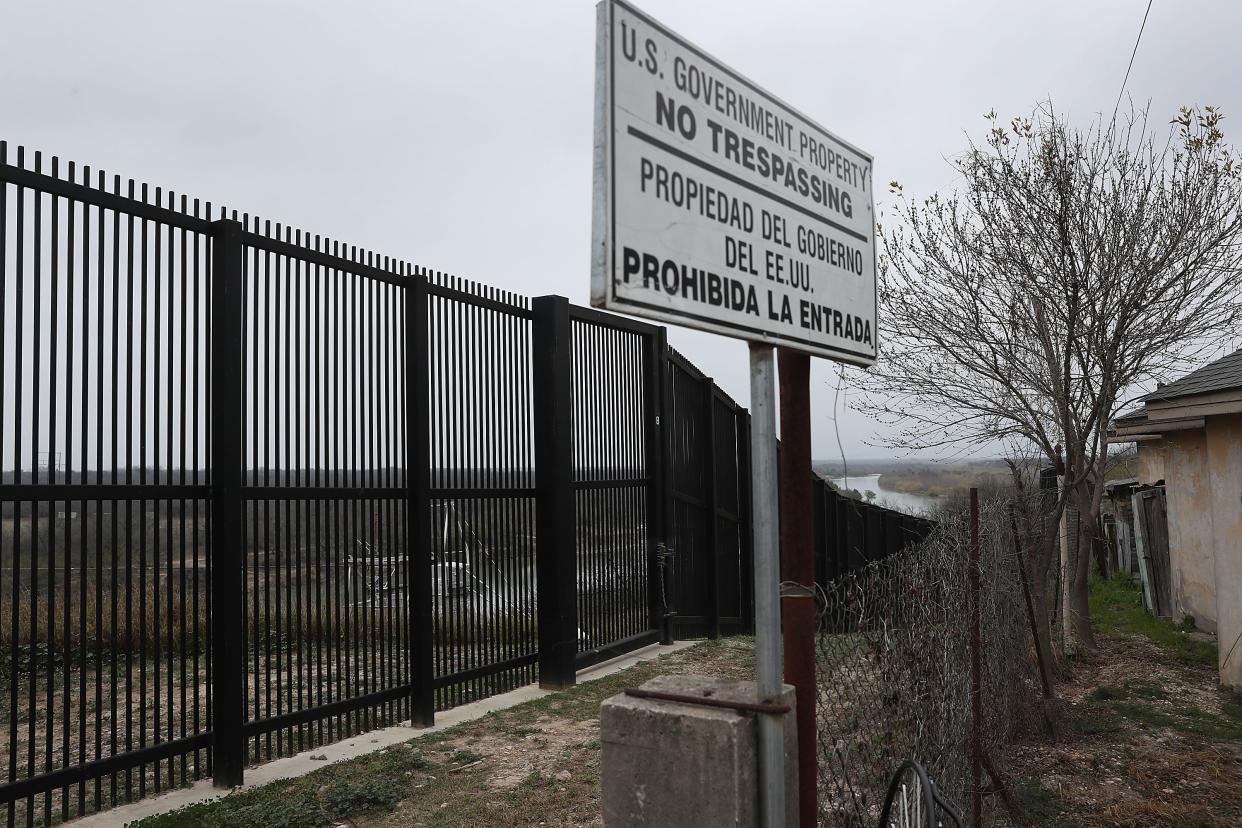Biden froze border wall funding — now a government watchdog will decide if that was legal

- Oops!Something went wrong.Please try again later.
Joe Biden froze billions of dollars in border wall funding on his first day in office, fulfilling a campaign promise to halt construction on a project Democrats had been fighting for the last four years.
But now Republicans have asked the non-partisan Government Accountability Office to adjudicate whether the president’s move defies laws giving Congress the authority to decide where dollars are spent.
The GAO confirmed to Politico that it has begun a review into the matter per the request of more than 100 GOP lawmakers.
Last week, 40 Republican senators led by West Virginia Republican Shelly Moore Capito wrote to the GAO arguing that Mr Biden’s actions are a “blatant violation of federal law and infringe on Congress's constitutional power of the purse.”
The letter also asserted that Mr Biden’s decision to halt border wall construction “directly contributed” to the recent surge in unaccompanied migrant children coming to the southern border.
Read more:
Biden news live: Latest updates as Trump accused of using migrants as ‘pawns’
Obama blasts ‘cowardly’ GOP for blocking gun control laws limiting ‘weapons of war’
Lauren Boebert criticized for tweeting about Biden during shooting in her state
Immigration advocates and Biden apologists have noted that the uptick in border encounters between US authorities and migrants comports with seasonal trends from previous years. The surge has nothing to do with Mr Biden’s policies, they say, and certainly does not represent a “crisis,” a label the administration has been unwilling to slap onto the situation.
Nevertheless, the GAO’s standard practice is to provide an adjudication whenever a member of Congress requests one, as it is doing in this case.
Congress appropriated $1.4bn to border wall construction as part of last year’s appropriations package, money Mr Biden froze on his first day in office as part of an executive action to dismantle his predecessor’s legacy at the border.
“Billions in lawfully appropriated dollars... [are sitting] unused by the Biden administration,” Republican senators wrote last week. That is in direct violation of a 1974 law that tightened the guardrails on a president’s discretion to redirect funding provided by Congress.
Republicans have tried to draw parallels between the new administration’s move to halt border wall funding and Donald Trump’s freeze on military aid to Ukraine in 2019, which the GAO previously deemed illegal.
The two situations, however, are not parallels.
Mr Biden has been transparent about the freeze he placed on the border wall funding, announcing it to the public well in advance of its actual execution. Mr Trump’s White House did not disclose its Ukraine aid freeze.
Additionally, Mr Biden has not linked his moves at the border to demands for personal favours for dirt on his political rivals, whereas Mr Trump was impeached for doing just that — soliciting a quid pro quo from the Ukrainian president in exchange for unlocking the congressionally appropriated military aid.
And a spokesperson for the Office of Management and Budget told Politico that Mr Biden’s freeze on funding for the border wall is “a necessary and responsible step for prudent management of federal funds” as various lawsuits against Mr Trump’s border wall wend their way through the court system.
The GAO has not released a timeline on when it might rule on the legality of the administration’s border wall freeze.
In Mr Biden’s January executive order on the matter, he argued that Mr Trump’s southern border wall is a wasteful allocation of government resources.
“Like every nation, the United States has a right and a duty to secure its borders and protect its people against threats. But building a massive wall that spans the entire southern border is not a serious policy solution,” the order stated.
The order also laid out a review process for wall funding and the government’s contractual obligations.
“It is a waste of money that diverts attention from genuine threats to our homeland security.”

